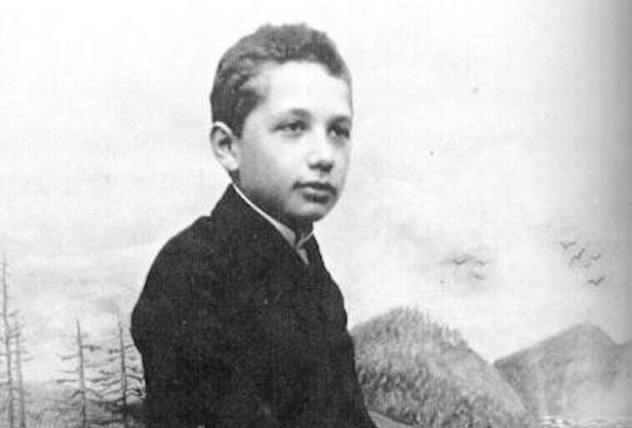 Movies and TV
Movies and TV  Movies and TV
Movies and TV  History
History 10 Dirty Government Secrets Revealed by Declassified Files
 Weird Stuff
Weird Stuff 10 Wacky Conspiracy Theories You Will Need to Sit Down For
 Movies and TV
Movies and TV 10 Weird Ways That TV Shows Were Censored
 Our World
Our World 10 Places with Geological Features That Shouldn’t Exist
 Crime
Crime 10 Dark Details of the “Bodies in the Barrels” Murders
 Animals
Animals The Animal Kingdom’s 10 Greatest Dance Moves
 Movies and TV
Movies and TV 10 Box Office Bombs That We Should Have Predicted in 2025
 History
History 10 Extreme Laws That Tried to Engineer Society
 History
History 10 “Modern” Problems with Surprising Historical Analogs
 Movies and TV
Movies and TV 10 Movie Adaptations That Ruined Everything for Some Fans
 History
History 10 Dirty Government Secrets Revealed by Declassified Files
 Weird Stuff
Weird Stuff 10 Wacky Conspiracy Theories You Will Need to Sit Down For
Who's Behind Listverse?

Jamie Frater
Head Editor
Jamie founded Listverse due to an insatiable desire to share fascinating, obscure, and bizarre facts. He has been a guest speaker on numerous national radio and television stations and is a five time published author.
More About Us Movies and TV
Movies and TV 10 Weird Ways That TV Shows Were Censored
 Our World
Our World 10 Places with Geological Features That Shouldn’t Exist
 Crime
Crime 10 Dark Details of the “Bodies in the Barrels” Murders
 Animals
Animals The Animal Kingdom’s 10 Greatest Dance Moves
 Movies and TV
Movies and TV 10 Box Office Bombs That We Should Have Predicted in 2025
 History
History 10 Extreme Laws That Tried to Engineer Society
 History
History 10 “Modern” Problems with Surprising Historical Analogs
8 Reasons The IQ Is Meaningless
The average person has an intelligence quotient of 100. An unsourced claim gives O. J. Simpson’s IQ as 89. Marilyn vos Savant has been cited in the Guinness Book of World Records for the highest measured IQ of 228, a number that can be sourced back to…Marilyn vos Savant. But Savant’s gifts to mankind’s progress include a “Dear Abby” style newspaper column, and a few books mostly compiled from this column. Here are eight reasons why your IQ really doesn’t matter all that much.

The first standardized attempt to measure the human’s mental capacity was courtesy of Alfred Binet and Theodore Simon, who formulated a test to measure verbal ability. Binet and Simon only wanted to use the test to find those children who suffered from mental retardation. This experiment was furthered by William Stern in 1912 to compare a child’s mental age with his or her chronological age. Stern coined the term “intelligence quotient.” The score is calculated by dividing the mental age by the chronological age, then multiplying the quotient by 100. If a child of 10 years old has a mental age of 5, his IQ is 50. Determining his mental age is the difficult part.
Once an average person reaches the age of 15 or so, the IQ test is no longer important, since the mental age has reached maturity. But an average child of 5 should have a mental age of 5. If that child has a mental age of 1, he has a below-average IQ. The two most popular tests used today are the Weschler and the Standford-Binet. On the latter, Albert Einstein (who will make quite a few appearances in this list) scored a now famous 186 as a child. On the former, the same score registers as a 160. The problem with either number is that the tests were not originally conceived for the purpose of scoring this high.
Extremely high scores are routinely inaccurate. 180 on the Standford-Binet is typically the top of the scale, and anything measured over it has few precedents for comparison and should be taken with a grain of salt. Suffice to say, the test-taker has a high degree of adaptability, versatility, and fast retention of information. But is a 186 “smarter” than a 176?
All the various tests can do is discover the very low scorers among children, and these scores are quite accurate. The difference between a 79 and a 69 is highly noticeable, and the test can determine which is which and the reasons why. Given our current understanding of intelligence, the only feasible method by which to score extremely high IQs accurately is to make the questions harder. Spatial reasoning diagrams have many more moving parts and last longer; jumbled words are longer; arithmetical sequences have more gaps. But if you can perform these mental feats on simple challenges, the only difference between them and the more difficult ones is the time you require to solve them. If so, then disregarding the time you need to finish the test, your score ought to be the same. You did the same kind of work. If you deserve a bonus for the extra difficulty, then your score has become arbitrary.

Quite a few IQ tests measure “general knowledge.” Here’s an actual IQ question this lister came across when he was 5: “What color is an apple?” Well, the only apples this lister had seen in his first 5 years were green. Got that one wrong. There are quite a few colors of apples. Some are more than one color. Mensa’s test includes questions like, “2D is to mobius strip as 3D is to ______.” Google says the answer is “Klein bottle.” Now that we know, are we smarter? Einstein once said that he did not like to clutter up his memory with facts and numbers that he could just look up in a dictionary.
As general knowledge goes, the intent is to ask questions to which everyone on Earth, at an age of 5, should know the answers. There are some questions that fit the bill, like “What is 2 + 2?” but does a correct answer to this question indicate a higher mental capacity in the child? IQ tests have historically tried to eliminate all unfairness, and the only way to do so is to eliminate “general knowledge” questions. One question ths lister encountered on the Internet is, “If you unscramble the letters in CIFAIPC, you would have what?” The choices include the correct answer, “ocean.” This question measures vocabulary, reading, and visual reasoning. But suppose the person taking the test understands English and yet has never heard of the Pacific Ocean.

IQ tests were invented for the purpose of scoring children. We all know that children require a lot of parental discipline to ensure they don’t grow up to be criminals. It always starts innocuously enough with bullying, name-calling, and lording any advantage that can be found over a supposed inferior child. While the children with high IQs are usually deemed the nerds of a group and picked on by the larger, and usually dumber, bullies, the nerds frequently pick on each other as well. Size may not matter, but the group that knows everything about Star Trek will publicly ridicule the individual who wants to fit in but can’t.
Children are mean. They require maturity to grow out of this, and though good parenting is essential, it really only stops with age. This is why parents are usually told that it is a better idea not to inform their children of their IQs. If it’s even one point below the arbitrary average of 100, the child will feel inferior. If it’s well above average, the child will likely lord it over his peers. If it is average, the child will probably still feel inferior.
But then, adults seem to take their IQs very seriously—when it’s in their favor. We have groups around the world like Mensa, the Triple Nine Society, the Prometheus Society, and the Mega Society. The last of these is said to be the most exclusive intellect club in the world. Applicants must score at least 171 on the Standford-Binet test to be accepted. Mensa requires “only” a 132. But what good is it to be a member? The Mega Society does very little that can be described as helpful. They have meetings now and then around the world, and at these meetings, the members just schmooze and congratulate each other. More on this at #1.

The Internet, and so-called “experts” before it, have long propagated some theoretical, famously high IQs across history. They are, of course, utter conjecture, since the IQ, as a notion of measured intellect, and its tests have only been around since the turn of the 20th Century. But if you google “famous high iqs,” you’ll find well known webpage(s) claiming that on the scale that measures an average as 100, and Einstein’s as 160, Leonardo da Vinci “scored” 220. That’s an outright lie for a number of reasons: da Vinci didn’t score anything on a test that had yet to be invented; he might have had a 220, but not because the webpage says so—nobody knows; the numbers on these sites seem to be estimates based on the person’s significance to history, as well as the diversity of their exploits.
Everyone knows da Vinci had his hand in everything. But is that why Einstein scores lower at 160? Einstein is less creative? If you think it’s difficult to measure intellect in terms of the black-and-white mathematics and sciences, imagine measuring a person’s skill in liberal arts. You pick the single genre of the arts. Let us say “literature.” The tests usually measure skill in spatial reasoning, reading, vocabulary, arthmetic, memory and sometimes general knowledge. So in terms of vocabulary, would Shakespeare have a higher IQ than Ernest Hemingway, because Shakespeare uses bigger words in his work? Hemingway had this to say about it, “William Faulkner is of the opinion that because I do not use the 10 dollar words, I don’t know them. Well, we both have Nobel Prizes, so I assure you, I do. But there are older ones, simpler ones, better ones, and those are the ones I use.”
And how do we measure the IQ of Ludwig van Beethoven? He was good at music, but not good at mathematics. His mathematical education stopped at arithmetic. He couldn’t even do intermediate algebra. If he were to take the test, he would probably score low, but the absence of math and science from his mind didn’t hurt his career much. Charles Dickens is said to have had a 180 IQ. Why? Because Nicholas Nickleby is a good story? It is impossible to judge this literature as better than that (within reason), because all liberal arts are subjective endeavors. Justin Bieber has a lot of fans, and a lot of them probably think his music is better than Mozart’s.
Is it fair to say that Stephen Hawking’s estimated 160 deserves to be lower than Isaac Newton’s 190? They both worked in the same fields. But Newton “created” the calculus. Hawking simply works with it. Is that worth a 30 point drop? Andy Warhol was a rather good painter for someone with an 86, although to be fair, he may have answered the questions wrong on purpose, in protest. Who was smarter, Warhol or Jackson Pollock?

Einstein is typically remembered as a poor student when he was young, but that is grossly unfair. By the time he graduated from high school, Einstein had made his poorest showing how fast he answered questions. The German teachers were trained to drill the knowledge into the students by rote, and this was not how Einstein’s brain worked. When asked a question, he thought for a while to remember the answer, then thought some more to be sure of it. This was all it took to come close to failing several times, but he never did. His teachers considered him retarded. One of them just shook his head while Einstein was thinking and said, “Einstein, you will never amount to anything!”
Most IQ tests are timed, which means your speed is part of the score. Even if you answer every question correctly, your slow speed will pull your IQ down a few points, sometimes many. But is speed important in life? If you’re an astronaut working calculus to correct your decaying reentry trajectory before you burn to death, time is more than money, but how many of us will experience such a problem in life? And besides, why not get the math right before you reenter?

We know by now that the popular legend of Einstein the F-student is not true. He never flunked a course in his life, and in high school, he got very good grades. But for someone who redefined the entire 20th Century, whose last name has become a byword for “genius,” you would expect straight As, and Einstein did not get them. His report card for junior/senior year in high school is well know across the Internet, and it shows grades of 6, or A, in algebra, geometry, applied geometry, physics, and history. He scored 5 in chemistry, Italian, and German, a 3 in French, and 4 in geography and art. Most of them fair grades, but then, his strongest suits are obvious.
IQ tests typically measure the scientific and mathematical disciplines very well because you’re either right or wrong. There is no gray area. In this regard, it makes sense why Einstein would score a 186. He had a lot of talent for math. But while in elementary and middle schools, he scored a solid 3 to 4, or about a C, in most linguistic subjects, even his own language. If the test he took was balanced, with focus given to the liberal arts, his scores in these subjects certainly pulled his overall score down, which means his mathematical brain probably scored a lot higher than 186. On top of all this, Einstein failed his entrance exam to get into the Swiss Federal Polytechnical School. He aced the math and science sections, but failed French, Italian, history, and geography. He had to spend a year in a run-of-the-mill vocational college until they let him retake the exam. So how can we trust the single number?

If Joe Frazier and Muhammad Ali were to have taken the same IQ test, which one would have scored higher? Ali seems the more reasonable answer, but this is strange inasmuch as we know very little of the mens’ intellectual capabilities. They didn’t work in mathematics or mechanical engineering. They were boxers. They made millions by beating people up. Ali won two of their three encounters, but don’t count Frazier as a footnote to Ali’s glory. Frazier was the only man to beat Ali in his prime. He did it on points and he knocked Ali down.
What do you think Frazier would have scored on an IQ test? An average 100? But a high IQ doesn’t enable a person like Einstein to box well. Einstein had no desire to box, or do very much that is physical. Perhaps it is fair to say that there is such a thing as a “physical IQ.” Boxing is a sport of motor skills. These are controlled by the brain, and some people are born with an incredible knack for refining them with ease. Franz Liszt had extreme motor skills in his hands and feet.
If two boxers train in the same way, and one of them very quickly learns how to duck, jab, dance, and counterpunch, while the other simply can’t get it, we see the existence of “talent.” IQ tests are used to measure universal truths in mental acuity. Is it fair to say that the boxer with more aptitude for the sport is the more intelligent of the two? IQ tests do not root out such natural prodigies.

Of course intelligence is rather important to life as a human, and the higher one’s is, the better, but only if it is put to good use. The film Good Will Hunting deals with this requirement to use one’s “gift” for the improvement of mankind and the world. Everyone knows Einstein was a genius. But is he famous because of his 186 IQ? Or did his papers on Relativity and the photoelectric effect have anything to do with it? He was also rather involved in the creation of the atomic bomb. Time Magazine calls him the Man of the 20th Century.
Ever heard of William James Sidis? He lived from 1898 to 1944 and is reputed to have had a “ratio IQ” between 250 and 300. This IQ is a matter of very heated debate to this day, because the sources don’t agree and all of them are hearsay. There is, however, no doubt that he had an extremely fast aptitude for learning anything. By his 20s, he was able to speak in over 40 languages, and claimed to be able to learn one in a day. He invented his own language, called Vendergood, which was a mishmash of Ancient Greek, Latin, and about 8 other European languages. J. R. R. Tolkien did the very same thing with Elvish, and spoke at least 30 languages. But we don’t think of Tolkien as having an IQ above 250, and yet he wrote a lot more than Sidis, and Tolkien’s literature is popular. Sidis invented a rotary calendar that would always be accurate even to the leap year. But why is that important? We already have working calendars. With a 300 IQ, it’s a shame he didn’t invent the time machine or a real lightsaber.
Rene Descartes, probably another high IQ holder, famously wrote, “Cogito, ergo sum.” “I think, therefore, I am.” While this lister definitely agrees, he has always thought of this statement as incomplete. William Sidis proves it. He squandered his natural talents on the trivial. Einstein reached the heights of his greatness with “only” a 186. What could Sir Isaac Newton have done with a 300? Perhaps the phrase should be, “Cogito, ergo sum. Facio, ergo recordaremur.” “I think, therefore I am. I do, therefore I will be remembered.”
FlameHorse is a writer for Listverse. He has no idea what his IQ is.








